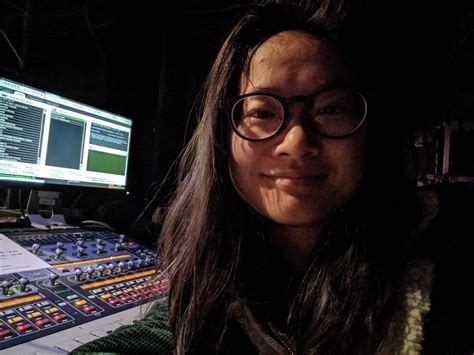Unfortunately, I can no longer say I have never experienced racial discrimination in our industry.
About a year ago, I landed a job after the much-anticipated remodeling of a local midsized venue. I was hired with the understanding that I wouldn’t be one of the main engineers but still taking a handful of shows a month. As an unknown quantity, I would start as an A2, and then start getting A1 shifts once I had established myself a bit. It was exciting: the room was custom-made, and the consoles were top of the line aalthough not very common.
The reality was very different. Call times were texted late at night the day before. Advance info wasn’t received until hours before the call time. At most I was scheduled for two shifts in a month. Most months I had no shifts at all. In the end, I was only getting shifts if I specifically requested to work a show. When I asked what I could do to get more shifts I was given the equivalent of a verbal shrug. I was sidelined as an A2 and told I wasn’t experienced enough to move into the A1 role, despite being a regular A1 at a couple of other venues twice the size and being the FOH engineer for a local artist. I asked for my pay to get matched to my other venues and was declined. It felt like I was being pushed out somehow, even though I was never given the chance to establish myself.
I started to wonder if my demographics had to do anything with the work environment I experienced. I was the only woman of color on the audio staff, and one of a handful of nonwhite engineers. I was left off the schedule almost completely. The other two men were pushed down into working the smaller stage more often, even though we were designated as working in the main room. Everyone scheduled regularly in the main room was white and male. It felt like I was being singled out, but I wasn’t quite sure, because I felt that I wasn’t even around enough to have a clear picture.
It became more and more frustrating. I had never properly learned the console or even the venue because I was there so infrequently, so reconfiguring my file each time I worked and troubleshooting anything that happened was a slog. I would be cranky for 24 hours before the few shifts I had, partially because I knew how frustrating just doing my job would be and also because I still had no information about what time to show up or what the show was.
I decided that there was no point in continuing to request shows. It wasn’t a good working environment. Venue politics aside, the way the venue was set up and the amount of time that passed between my shifts made simply getting a show-up and running much more difficult than it needed to be. It was clear I wasn’t going to get more shifts; it was clear I wasn’t going to move up; it was clear I wasn’t going to get paid more, and losing $250 once every two months was an almost unnoticeable financial impact. I essentially didn’t work there anyway. Finding out that one of the other nonwhite engineers, who was very much established, was fired in part for questioning the same scheduling pattern I had noticed sealed the deal. I decided to quit sending in my availability.
Little did I know that I too would get fired before I could quietly fade myself out.
I had agreed to cover a shift when I realized I had double-booked myself. There were still several weeks to go, so I contacted the few coworkers I had contact information for, and when no one was free I contacted the person who was responsible for scheduling. Instead of helping me, he gave me three options: switch to a different day that week (not possible, as I was booked or out of town), pressure the original engineer into taking the shift back (not how that works), or dropping my conflicting shift (which I had committed to first, paid significantly more, and was with a company that gives me regular work). When I declined to take him up on any of those options, I heard nothing for a day, before receiving a very passive-aggressive text message telling me that I was off the shift and also no longer in the scheduling pool. Getting fired for something as standard as needing help finding coverage for a shift only confirmed that my instincts to get out of there were correct.
Walking away can be hard, but it’s important to know your worth and feel confident in your reputation as an engineer. If you don’t feel you’re getting anything out of a gig, and you can survive financially without it, there’s no shame in letting it go. Stand up for yourself and stick to your boundaries. It’s not a failure. There will always be more. This venue fired me while I was at my home venue doing the best-sounding FOH mix I’ve ever done in that room. Move on to somewhere that values you and don’t look back.
